[ad_1]
Is organic food actually healthier? Are the benefits worth the https://camillestyles.com/wellness/eating-healthy-on-a-budget/”>expense? Do you have to eat organic—or is that a quick-fire way to burn a hole in your wallet? Spoiler alert: the answer is nuanced. When it comes to eating organic, a few factors are at play—i.e., your values, budget, and accessibility. For some, organic is an integral part of https://camillestyles.com/wellness/”>living well and https://camillestyles.com/wellness/how-to-start-composting-for-beginners/”>taking care of the environment. Others argue that eating organic is too expensive, unnecessary, and inaccessible. Somewhere in the middle lie those of us who eat organic when possible, but we’re not dogmatic about it.
As you navigate this growing section of the grocery store, it’s important to know what organic means and how to get the most bang for your buck—for the sake of your wallet, your body, and the planet.
Feature image of https://camillestyles.com/entertaining/malibu-farm/”>Helene Henderson’s kitchen by https://www.tealthomsen.com/” target=”_blank” rel=”noreferrer noopener”>Teal Thomsen.
 https://camillestyles.com/wellness/do-you-have-to-eat-organic/javascript:void(0)” class=”pinit” data-url=”https://camillestyles.com/wellness/do-you-have-to-eat-organic/” data-desc=”Everything To Know About Eating Organically—Is It Worth The Price Tag?” data-img=”https://camillestyles.com/wp-content/uploads/2022/08/camille_citrus-768×1152.jpg”/>
https://camillestyles.com/wellness/do-you-have-to-eat-organic/javascript:void(0)” class=”pinit” data-url=”https://camillestyles.com/wellness/do-you-have-to-eat-organic/” data-desc=”Everything To Know About Eating Organically—Is It Worth The Price Tag?” data-img=”https://camillestyles.com/wp-content/uploads/2022/08/camille_citrus-768×1152.jpg”/>
Subscribe
Our Top 10 Recipes
Sign up to receive a FREE E-BOOK of my top 10 most popular recipes of all time!
Thanks for Signing Up!
Oops!
Looks like you’re already signed up or your email address is invalid.
Oops!
Looks like you unsubscribed before https://camillestyles.us5.list-manage.com/subscribe?u=da7a1e93308747eb003397088&id=876c959d2c” target=”_blank” rel=”noopener”>click here to resubscribe.
What does organic mean?
Let’s begin here. Between nutrition facts, ingredients lists, and (misleading) dietary claims, “organic” is yet another piece of the grocery shopping puzzle. Along with https://camillestyles.com/food/recipes/dinner/”>what’s for dinner and what’s budget-friendly, you may be left wondering how to decide when organic is worth it—and when it’s not. Therefore, knowing what “organic” actually means can help you make informed choices! For organic agricultural products to carry the https://www.foodandwaterwatch.org/2018/07/31/understanding-food-labels-2/” target=”_blank” rel=”noreferrer noopener”>certified organic label, they must meet these requirements:
- Food can’t be grown with synthetic fertilizers, synthetic pesticides, or sewage sludge
- Food can’t be genetically engineered—GMOs are prohibited
- Animals must eat organically-grown feed, without animal byproducts
- Animals can’t be treated with synthetic hormones or antibiotics
- Animals must have access to the outdoors and/or pasture
- Animals can’t be cloned
- Specific soil and water quality maintenance is required
Produce can be called organic if it’s certified to have grown on soil that had no prohibited substances applied for three years prior to harvest. Prohibited substances include most synthetic fertilizers and pesticides.
https://www.usda.gov/media/blog/2012/03/22/organic-101-what-usda-organic-label-means#:~:text=USDA%20certified%20organic%20products%20must,%2C%20irradiation%2C%20or%20genetic%20engineering.” target=”_blank” rel=”noreferrer noopener”>USDA Government
In essence, the term “organic” refers to the way agricultural products are grown and processed. The regulations vary across the globe.
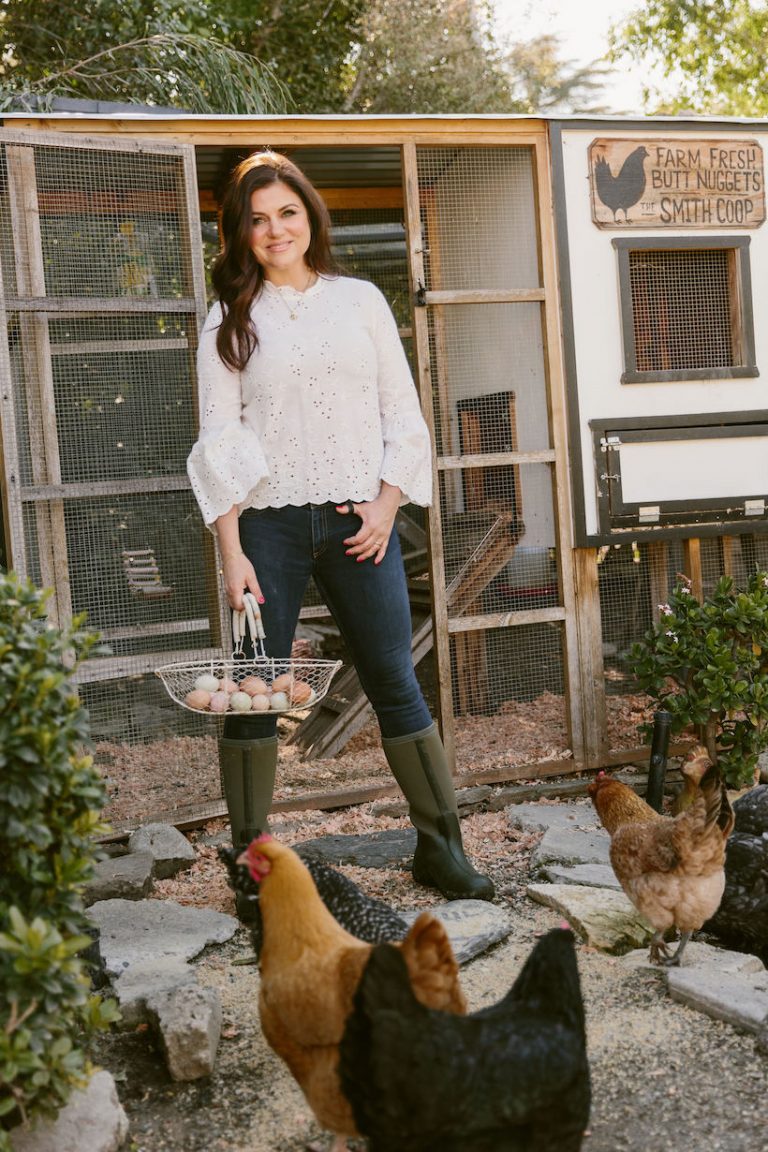 https://camillestyles.com/wellness/do-you-have-to-eat-organic/javascript:void(0)” class=”pinit” data-url=”https://camillestyles.com/wellness/do-you-have-to-eat-organic/” data-desc=”Everything To Know About Eating Organically—Is It Worth The Price Tag?” data-img=”https://camillestyles.com/wp-content/uploads/2022/08/tiffani-thiessen-eat-organic-768×1152.jpeg”/>
https://camillestyles.com/wellness/do-you-have-to-eat-organic/javascript:void(0)” class=”pinit” data-url=”https://camillestyles.com/wellness/do-you-have-to-eat-organic/” data-desc=”Everything To Know About Eating Organically—Is It Worth The Price Tag?” data-img=”https://camillestyles.com/wp-content/uploads/2022/08/tiffani-thiessen-eat-organic-768×1152.jpeg”/>What makes livestock organic?
As for organic meat, livestock must be raised in living conditions that mimic the animals’ natural behaviors. For example, the ability to graze on pasture, eat organic feed, and forage. They aren’t given anything synthetic. They also aren’t administered antibiotics, growth hormones, or any animal by-products. Furthermore, organic livestock farmers must utilize composted animal manures to improve soil nutrient density.
How Processed Foods Meet USDA’s Organic Standards
When it comes to processed, multi-ingredient foods, the USDA http://www.ams.usda.gov/AMSv1.0/ams.fetchTemplateData.do?template=TemplateC&navID=NationalOrganicProgram&leftNav=NationalOrganicProgram&page=NOPConsumers&description=Consumers&acct=nopgeninfo” target=”_blank” rel=”noreferrer noopener”>organic standards specify a few things. For example, for your favorite https://camillestyles.com/wellness/foods-to-ditch/”>granola bar or box of crackers to indicate “made with organic [specific ingredient or food group],” they can’t contain artificial preservatives, colors, or flavors. Of course, their ingredients must be organic—with some minor exceptions.
Ultimately, when packaged products say they’re organic, this means they contain at least 70% organically produced ingredients. The remaining non-organic ingredients must be produced without using prohibited practices (genetic engineering, for example) but can include substances that would not otherwise be allowed in 100% organic products. More on how organic food is labeled, https://www.usda.gov/media/blog/2012/03/22/organic-101-what-usda-organic-label-means” target=”_blank” rel=”noreferrer noopener”>here.
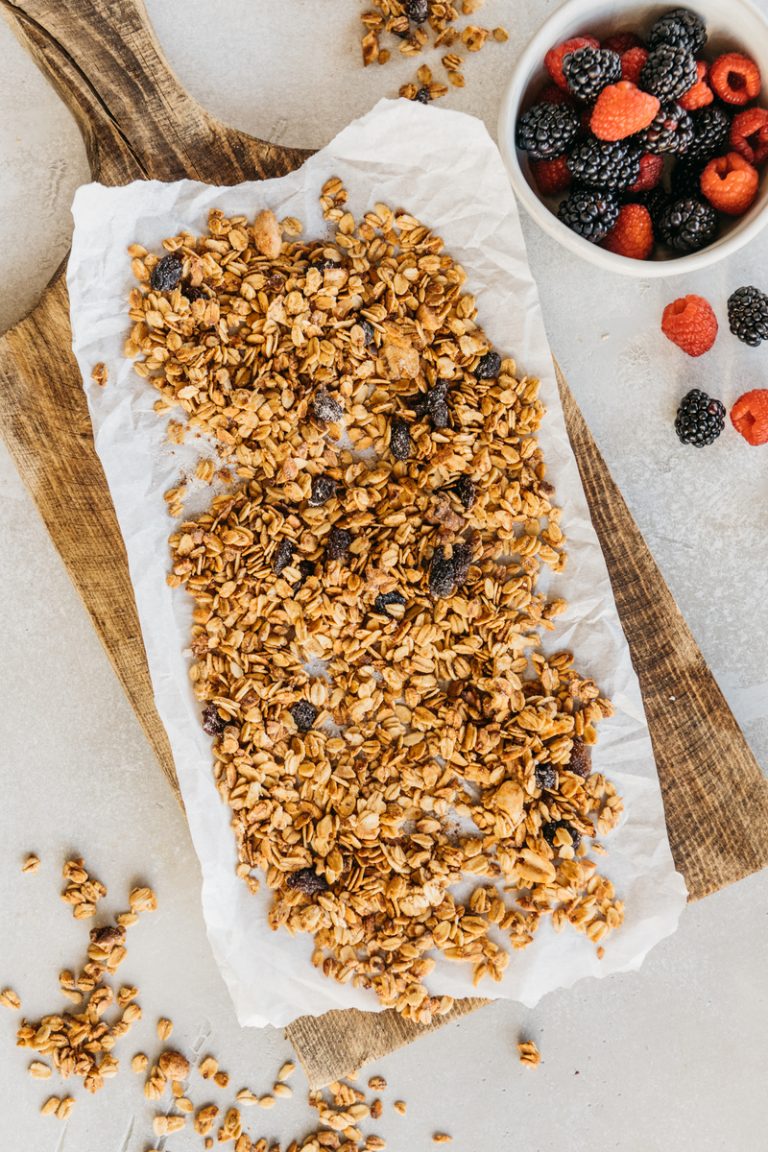 https://camillestyles.com/wellness/do-you-have-to-eat-organic/javascript:void(0)” class=”pinit” data-url=”https://camillestyles.com/wellness/do-you-have-to-eat-organic/” data-desc=”Everything To Know About Eating Organically—Is It Worth The Price Tag?” data-img=”https://camillestyles.com/wp-content/uploads/2022/08/Granola-eat-organic-1-768×1152.jpg”/>
https://camillestyles.com/wellness/do-you-have-to-eat-organic/javascript:void(0)” class=”pinit” data-url=”https://camillestyles.com/wellness/do-you-have-to-eat-organic/” data-desc=”Everything To Know About Eating Organically—Is It Worth The Price Tag?” data-img=”https://camillestyles.com/wp-content/uploads/2022/08/Granola-eat-organic-1-768×1152.jpg”/>Is organic food actually more nutritious?
The short answer: yes. The https://www.cambridge.org/core/journals/british-journal-of-nutrition/article/higher-antioxidant-and-lower-cadmium-concentrations-and-lower-incidence-of-pesticide-residues-in-organically-grown-crops-a-systematic-literature-review-and-metaanalyses/33F09637EAE6C4ED119E0C4BFFE2D5B1″ target=”_blank” rel=”noreferrer noopener”>British Journal of Nutrition found that organic crops have higher concentrations of https://www.ncbi.nlm.nih.gov/pmc/articles/PMC4141693/” target=”_blank” rel=”noreferrer noopener”>antioxidants, lower levels of heavy metals and nitrates, and fewer pesticide residues than non-organic crops. This particular study analyzed 343 peer-reviewed research papers, which documented nutritional benefits of organic grains, fruits, and vegetables. To date, it’s the most extensive analysis of its kind. Furthermore, another comparative https://pubmed.ncbi.nlm.nih.gov/11327522/” target=”_blank” rel=”noreferrer noopener”>study calculated nutrient contents of organic vs. conventional produce and grains. The results? Higher levels of vitamin C, iron, magnesium, and phosphorus in the organic crops.
Beat the bloat with these https://camillestyles.com/food/3-anti-bloating-smoothie-recipes/”>organic smoothies!
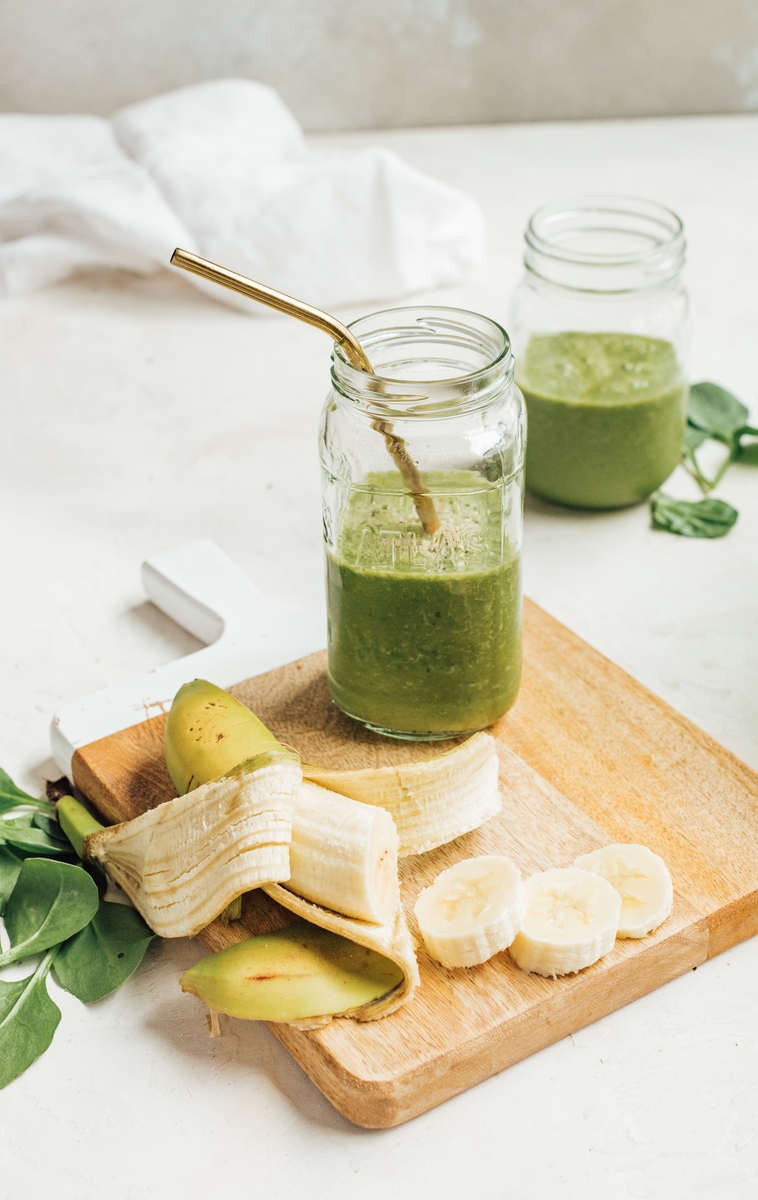 https://camillestyles.com/wellness/do-you-have-to-eat-organic/javascript:void(0)” class=”pinit” data-url=”https://camillestyles.com/wellness/do-you-have-to-eat-organic/” data-desc=”Everything To Know About Eating Organically—Is It Worth The Price Tag?” data-img=”https://camillestyles.com/wp-content/uploads/2022/08/Green-smoothie-eat-organic.jpg”/>
https://camillestyles.com/wellness/do-you-have-to-eat-organic/javascript:void(0)” class=”pinit” data-url=”https://camillestyles.com/wellness/do-you-have-to-eat-organic/” data-desc=”Everything To Know About Eating Organically—Is It Worth The Price Tag?” data-img=”https://camillestyles.com/wp-content/uploads/2022/08/Green-smoothie-eat-organic.jpg”/>Eat Organic, Reap the Health Benefits
While more clinical studies are needed, we know that https://pubmed.ncbi.nlm.nih.gov/31861431/” target=”_blank” rel=”noreferrer noopener”>observational studies show this: an increased intake of organic foods is associated with health benefits. For example, reduced incidence of https://wellnesswithedie.com/natural-ways-toboost-your-fertility-in-your-30s/” target=”_blank” rel=”noreferrer noopener”>infertility, birth defects, pre-eclampsia, https://camillestyles.com/wellness/meal-plan-to-balance-blood-sugar/”>metabolic syndrome, high BMI, and non-Hodgkin lymphoma. There are also a handful of other key benefits associated with organic farming. Like, improved soil health, reduced exposure to pesticide residue, and increased levels of crucial micronutrients.
All of that said, the funding for organic research has—historically—been underwhelming. However, research on the benefits of eating organic foods continues to grow. USDA funding is expected to increase to $50 million by 2023. And companies like https://www.prnewswire.com/news-releases/danone-north-america-expands-the-most-comprehensive-regenerative-agriculture-program-in-the-dairy-industry-301196286.html” target=”_blank” rel=”noreferrer noopener”>Danone are increasing funding for soil health, regenerative agriculture, and organic foods. Win, win, win.
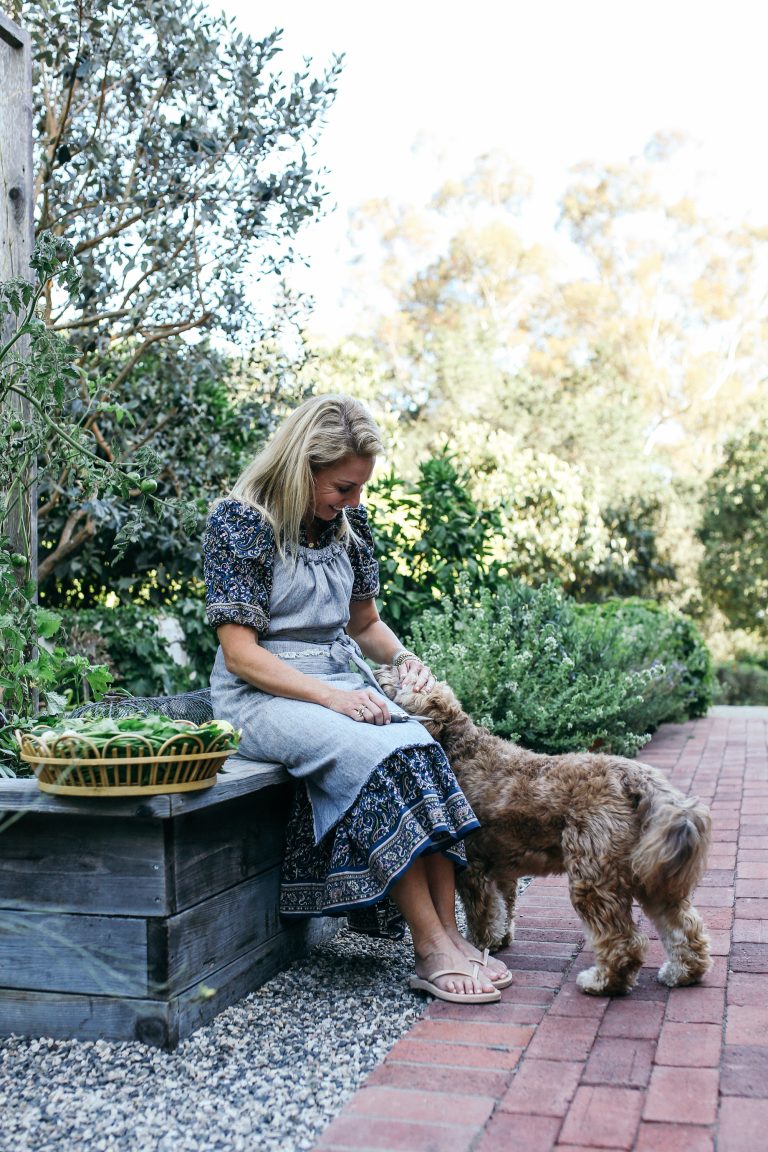 https://camillestyles.com/wellness/do-you-have-to-eat-organic/javascript:void(0)” class=”pinit” data-url=”https://camillestyles.com/wellness/do-you-have-to-eat-organic/” data-desc=”Everything To Know About Eating Organically—Is It Worth The Price Tag?” data-img=”https://camillestyles.com/wp-content/uploads/2022/08/valerie-rice-eat-organic-768×1152.jpg”/>
https://camillestyles.com/wellness/do-you-have-to-eat-organic/javascript:void(0)” class=”pinit” data-url=”https://camillestyles.com/wellness/do-you-have-to-eat-organic/” data-desc=”Everything To Know About Eating Organically—Is It Worth The Price Tag?” data-img=”https://camillestyles.com/wp-content/uploads/2022/08/valerie-rice-eat-organic-768×1152.jpg”/>What happens when you eat all organic?
As mentioned, organic foods often have more beneficial nutrients—such as https://camillestyles.com/food/foods-that-are-high-in-antioxidants/”>antioxidants—than their conventionally-grown counterparts. Additionally, observational studies show that people with allergies (to foods, chemicals, or preservatives) may find their symptoms lessen when they focus on eating organic. At any rate, eating organic has many benefits:
You consume fewer pesticides
Chemicals such as synthetic fungicides, herbicides, and insecticides are widely used in conventional agriculture. These residues remain on (and in) the food we eat. When you eat organic, you’re automatically limiting your https://camillestyles.com/wellness/9-simple-ways-to-detox-every-day/”>exposure to toxins. This is especially important when it comes to grains, as most are sprayed with https://www.ewg.org/news-insights/news/glyphosate-contamination-food-goes-far-beyond-oat-products#:~:text=Percent%20of%20Samples%20with%20Glyphosate&text=Most%20glyphosate%20is%20sprayed%20on,that%20are%20not%20genetically%20engineered.” target=”_blank” rel=”noreferrer noopener”>glyphosate.
Your food likely tastes more flavorful
It doesn’t contain preservatives that make it last longer. Organic produce is sometimes produced on smaller farms, closer to where it’s sold. This is a win for https://camillestyles.com/food/how-to-organize-your-fridge-to-prevent-food-waste/”>your fridge and your https://camillestyles.com/food/creamy-vegan-pasta-with-tomatoes/”>taste buds.
You’re supporting the longevity of our environment
Organic farming practices help the environment. They reduce pollution, conserve water, reduce soil erosion, increase soil fertility, and use less energy. Farming without synthetic pesticides is also better for nearby animals, as well as people who live close by. Buying organic food is one way to be a steward of the environment.
You’re not ingesting antibiotics, growth hormones, etc.
When livestock are fed animal byproducts, their risk of various diseases increases. Plus, the use of antibiotics can create antibiotic-resistant strains of bacteria. None of these things are beneficial for human consumption. Beyond organic, it’s worth noting that purchasing https://www.ncbi.nlm.nih.gov/pmc/articles/PMC2846864/” target=”_blank” rel=”noreferrer noopener”>grass-fed and pasture-raised livestock provides additional nutritional benefits.
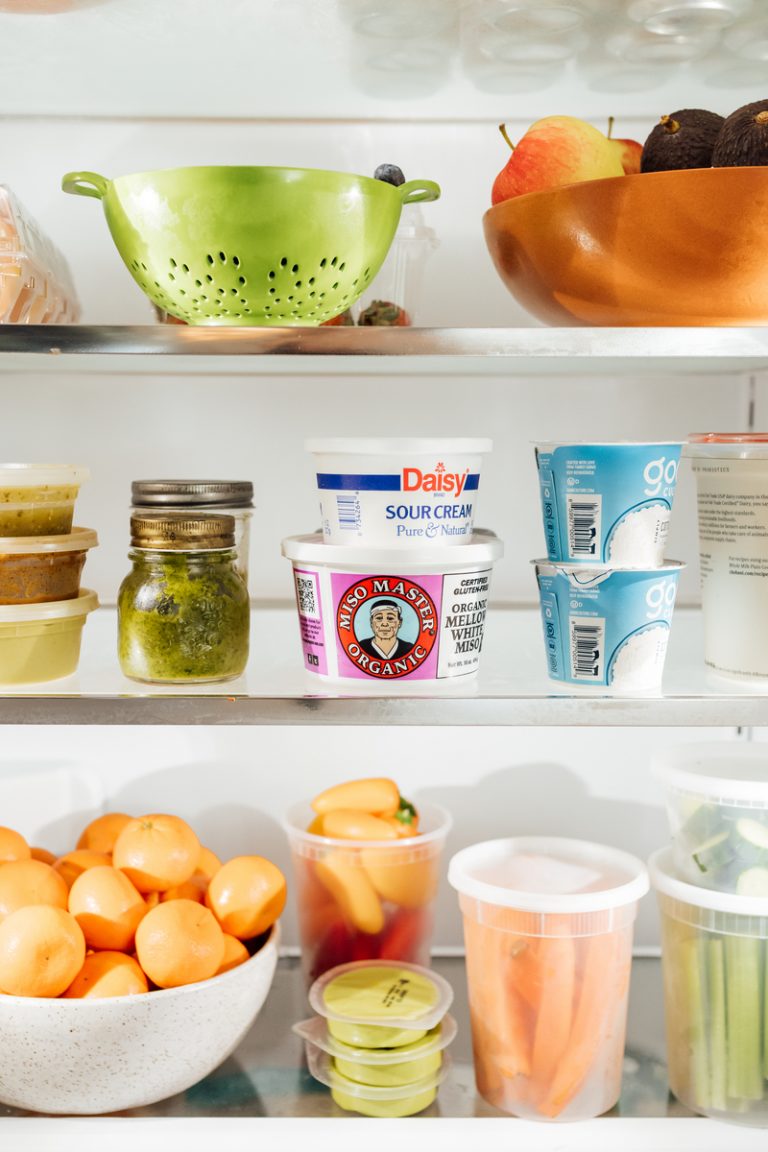 https://camillestyles.com/wellness/do-you-have-to-eat-organic/javascript:void(0)” class=”pinit” data-url=”https://camillestyles.com/wellness/do-you-have-to-eat-organic/” data-desc=”Everything To Know About Eating Organically—Is It Worth The Price Tag?” data-img=”https://camillestyles.com/wp-content/uploads/2022/08/camille-styles-fridge-9010-800×1200-cb6eae5-768×1152.jpg”/>
https://camillestyles.com/wellness/do-you-have-to-eat-organic/javascript:void(0)” class=”pinit” data-url=”https://camillestyles.com/wellness/do-you-have-to-eat-organic/” data-desc=”Everything To Know About Eating Organically—Is It Worth The Price Tag?” data-img=”https://camillestyles.com/wp-content/uploads/2022/08/camille-styles-fridge-9010-800×1200-cb6eae5-768×1152.jpg”/>Do I always need to choose organic?
As a https://wellnesswithedie.com/” target=”_blank” rel=”noreferrer noopener”>Nutrition Consultant, my answer is… no! When possible, of course, buy organic. It is the optimal choice—both for your health and the health of the planet. However, it’s important to note that many organic farmers do use (natural) pesticides. At any rate, eating organic doesn’t have to be as expensive or elitist as some people tout. At the very least, budget to buy https://www.ewg.org/foodnews/dirty-dozen.php” target=”_blank” rel=”noreferrer noopener”>these foods organic. And remember, frozen (organic) produce will almost always be cheaper! Choosing https://camillestyles.com/food/what-fruits-and-vegetables-are-in-season-in-summer/”>what’s in season is economical, too. Meat and dairy is another important category to prioritize organic, as well as https://www.supermarketnews.com/blog/study-organic-grains-healthier-conventional” target=”_blank” rel=”noreferrer noopener”>grains and these https://www.livestrong.com/article/269647-which-nuts-seeds-to-buy-organic/” target=”_blank” rel=”noreferrer noopener”>four nuts.
 https://camillestyles.com/wellness/do-you-have-to-eat-organic/javascript:void(0)” class=”pinit” data-url=”https://camillestyles.com/wellness/do-you-have-to-eat-organic/” data-desc=”Everything To Know About Eating Organically—Is It Worth The Price Tag?” data-img=”https://camillestyles.com/wp-content/uploads/2022/08/Outdoor-dining-eat-organic-768×1152.jpg”/>
https://camillestyles.com/wellness/do-you-have-to-eat-organic/javascript:void(0)” class=”pinit” data-url=”https://camillestyles.com/wellness/do-you-have-to-eat-organic/” data-desc=”Everything To Know About Eating Organically—Is It Worth The Price Tag?” data-img=”https://camillestyles.com/wp-content/uploads/2022/08/Outdoor-dining-eat-organic-768×1152.jpg”/>PHOTO: Kristen Kilpatrick Photography,Target, Target Party, Camille Styles, Camille Styles Austin, Camille Styles Bungalow, Camille Styles Kristen Kilpatrick, Kristen Kilpatrick Austin, Kristen Kilpatrick Editorial, Editorial Photographer, Target Garden, Target Inspiration, Target Fashion, Target Apparel, Target Camille Styles, Target Furniture, Outdoor Furniture, Summer Parties, Summer Inspiration, Camille Styles Home, Austin Texas
Dirty Dozen: Opt For Organic
Every year, the https://www.ewg.org/foodnews/dirty-dozen.php” target=”_blank” rel=”noreferrer noopener”>Environmental Working Group (EWG), updates their list of “Dirty Dozen” ingredients. These are common fruits and veggies sprayed with the most pesticides. When possible, buy these organic. The list includes strawberries, spinach, greens, nectarines, apples, grapes, and more. Keep in mind that while no washing method is 100% effective for removing all pesticide residues (if you opt for non-organic produce), https://amzn.to/3Pf2Bmo” target=”_blank” rel=”noreferrer noopener nofollow”>this produce wash is helpful in removing some chemicals and oils. Also, peeling isn’t 100% effective either, as pesticides can penetrate into the underlying flesh of fruits and veggies. At any rate, don’t let this deter you from https://camillestyles.com/wellness/how-to-add-more-dark-leafy-greens-to-your-diet/”>eating your greens!
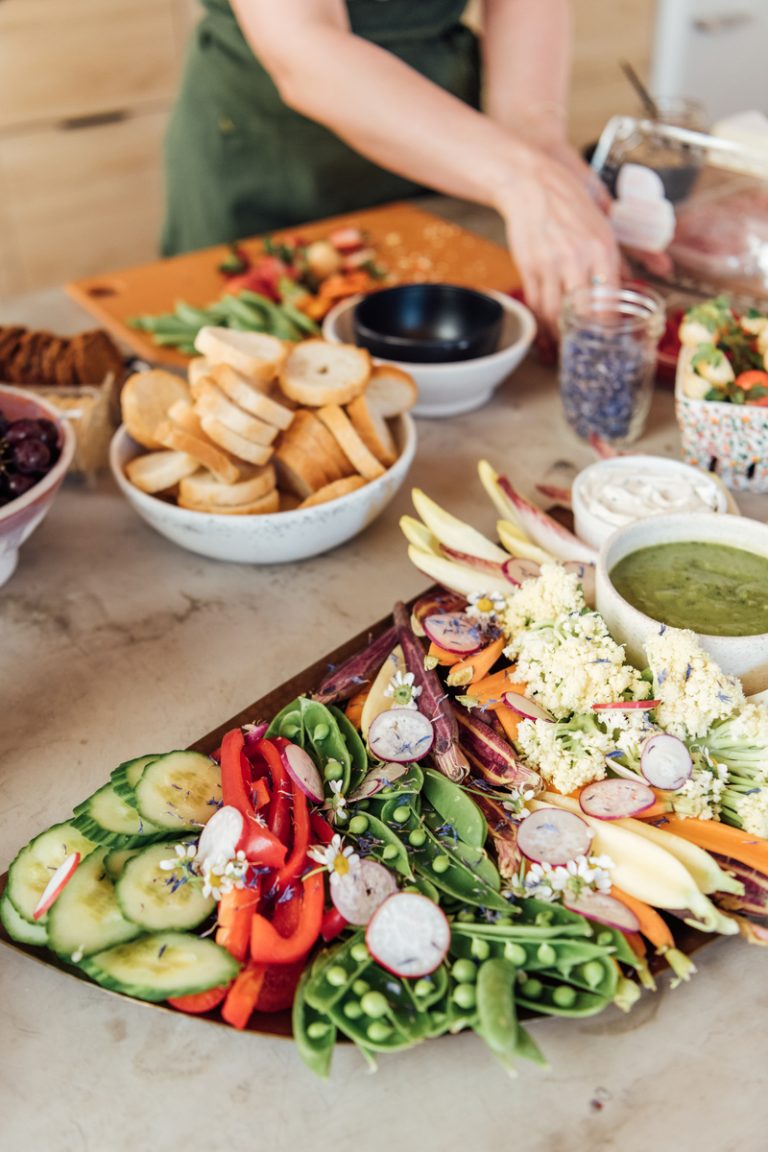 https://camillestyles.com/wellness/do-you-have-to-eat-organic/javascript:void(0)” class=”pinit” data-url=”https://camillestyles.com/wellness/do-you-have-to-eat-organic/” data-desc=”Everything To Know About Eating Organically—Is It Worth The Price Tag?” data-img=”https://camillestyles.com/wp-content/uploads/2022/08/Platter-of-produce-eat-organic-768×1152.jpg”/>
https://camillestyles.com/wellness/do-you-have-to-eat-organic/javascript:void(0)” class=”pinit” data-url=”https://camillestyles.com/wellness/do-you-have-to-eat-organic/” data-desc=”Everything To Know About Eating Organically—Is It Worth The Price Tag?” data-img=”https://camillestyles.com/wp-content/uploads/2022/08/Platter-of-produce-eat-organic-768×1152.jpg”/>Be Empowered, Not Fearful
When it comes down to what you should eat organic, the power is in your hands. Armed with an understanding of how organic produce is grown—and livestock is raised—you can make a more empowered decision about what’s on your plate. The goal isn’t to take a dogmatic approach. After all, eating conventionally-grown fruits and veggies is more important than foregoing them altogether.
[ad_2]
https://camillestyles.com/wellness/do-you-have-to-eat-organic/”>
